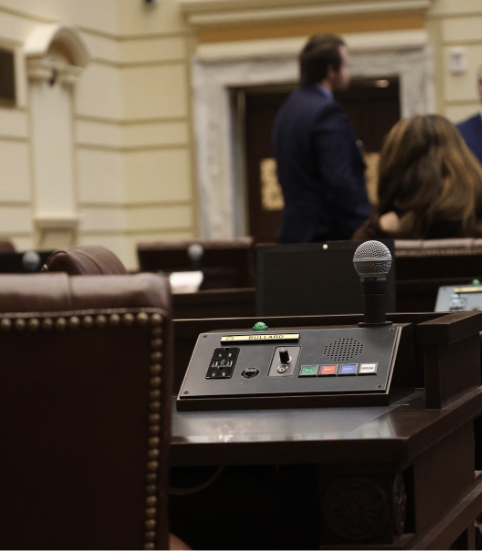By Journalist Alexandria Willard (OSU)
Reproductive technologies encompass a wide array of scientific advancements aimed at aiding or manipulating human reproduction. These technologies range from In-Vitro-Fertilization (IVF), to genetic screening and selection, offering opportunities for individuals or couples facing fertility issues to conceive. While these innovations have revolutionized family planning, they also raise ethical, legal, and social considerations surrounding the boundaries of manipulating human reproduction.

Thursday afternoon, the senate heard Bill No. OBU-001, authored by A. Brooks (OBU). Causing multiple motions to extend time for questioning, it was obvious this bill was causing the senators to not only talk amongst themselves, but they really had to deal with the ethical dilemmas surrounding reproductive technologies.
The “Donor-Conceived Children and Reproductive Clarity” Act of 2023, is an act granting children who are ‘donor-conceived’, the rights to the medical history of their biological parents at the age of eighteen (18) years or older.
The act would require donors to and receivers to sign consent forms agreeing to the information release, as well as limits on gamete donation to be set at a limit of twenty-five (25) families created, and embryos obtained through In-Vitro-Fertilization (IVF) may not be kept in cryo for longer than ten (10) years.
This act also requires the fertility clinic to permanently maintain and update every three (3) years: The identifying information and medical history for each donor it collects from and its recipients, the information about the number of families established with each donor’s gametes, and any record of gamete screening and testing.
When explaining her bill, Brooks stated, “The State of Oklahoma has four paragraphs on reproductive technology,” as well as the fact that many European countries and even Colorado, have banned anonymous donation.
The list of ethical issues surrounding In-Vitro-Fertilization (IVF), Gamete donation, as well as fertility clinics is lengthy, especially when taking into consideration the the child, or the “product” of these reproductive technologies. In questions, Brooks states the concern of “psychological distress [on the child] caused by the wonder of who they come from.”
Other questions raised included if donors would be able to “sue for custody”, where Brooks responded with, “No.”
There was not a chance to catch Brooks after her bill was passed, but it will be very interesting to see how this bill will be received in the house later this week.
